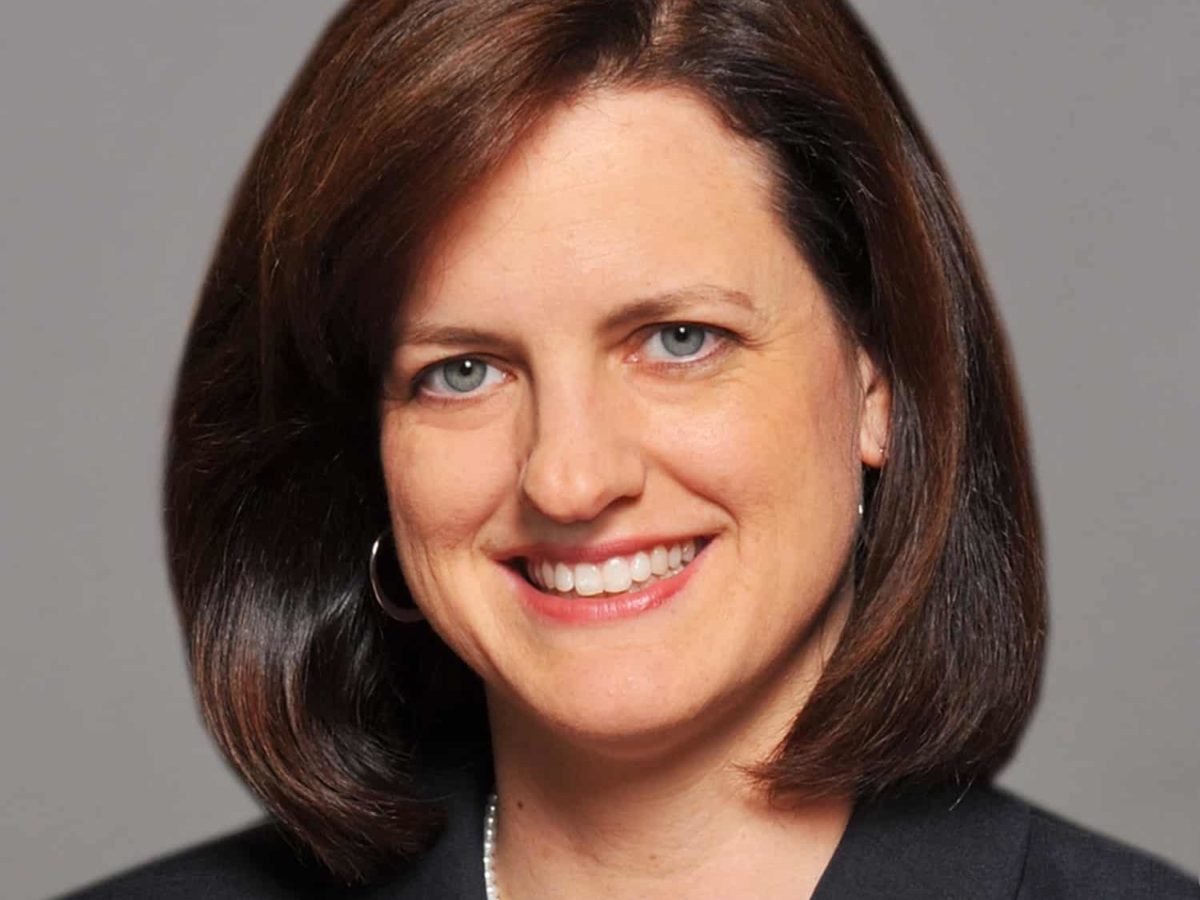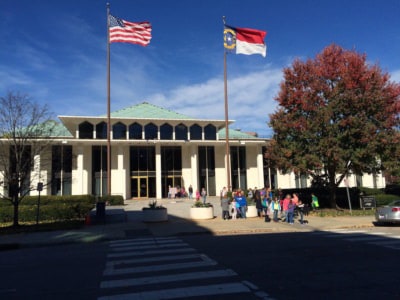

The following is a press release from State Treasurer Janet Cowell.
Raleigh, N.C. — State Treasurer Janet Cowell today voiced opposition to Senate Bill 554, “School Building Leasing Reform.” In a letter to members of the General Assembly, Cowell expressed the Department of State Treasurer’s concern regarding the policy changes and significant debt burden allowed by the bill.
“Senate Bill 554 is not a technical or local bill—it has major statewide implications for education and tax policy that warrant deeper scrutiny before such changes are considered,” wrote Treasurer Cowell. “Funding for education is our biggest fiscal issue and one that we should not take lightly. We have more needs than funding, but as we know from the Great Recession, risky financing methods and taking on more debt than you can afford can have disastrous consequences.”
Among the concerns listed in her letter, Senate Bill 554 would:
- Allow state student and teacher funding (the average daily membership) and all other state education funding to be used for school facilities, in this case to pay private developers.
- Allow counties to take on more debt than they could afford, endangering their creditworthiness and limiting debt capacity to meet the eventual needs of its police, fire and rescue, or jails.
- Allow private developers to be paid before essential county services, even in times of emergencies or economic distress.
- Permit a local unit to refund a private for profit business entity for expenses incurred in operating the building from local sales or use taxes.
- Exempt a governmental entity from submitting an operating lease to a competitive bid process.
The bill was referred to the Senate Committee on Education/Higher Education and is scheduled to be heard at an upcoming committee meeting, possibly as early as Wednesday, June 8.
###
June 7, 2016
Members of the North Carolina General Assembly
16 West Jones Street
Raleigh, NC 27601
Dear Senators and Representatives:
I am writing you to express serious concerns about Senate Bill 554, “School Building Leasing Reform.” This bill represents a major policy shift with statewide implications. As State Treasurer, it is my responsibility to ensure sound local and state government finances. As a member of the State Board of Education, I am committed to a quality education for every child. I recognize that there are real and pressing school infrastructure needs across North Carolina, especially in rural and economically-challenged areas and we need to look at innovative solutions. We must also do so in a manner consistent with our long history of conservative debt management.
The Department’s Local Government Commission (LGC) oversees the sale and delivery of all state and local debt and monitors the repayment of that debt. The LGC is staffed by our State and Local Government Finance Division, which assists local governments in determining the feasibility of projects, the size of the financing and the most expedient form of financing. Additionally, the Division monitors and analyzes the fiscal and accounting practices of all local governments. The Division and the LGC have a long history, dating back to the Depression, of aiding distressed local governments with expertise and professionally-accepted accounting and debt management practices.
I asked the LGC staff to research Senate Bill 554 and to assess its implications. Senate Bill 554 is not a technical or local bill—it has major statewide implications for education and tax policy that warrant deeper scrutiny before such changes are considered. The bill is related to a $1.4 billion Robeson County plan to finance and lease new schools that could be replicated statewide. The LGC was created to evaluate exactly these types of issues. However, this legislation has been drafted in such a manner that the LGC could be unable to disapprove this type of lease when it is presented to them. This makes the Department’s opposition all the more important now before this bill can advance further.
Here are the concerns:
- Most consequentially, this legislation allows state student and teacher funding (the average daily membership) and all other state education funding to be used for school facilities, in this case to pay private developers. North Carolina has a long history of supporting state funding for teachers and education staff and county funding for school buildings. This bill would blur that division and could result in the layoff of school personnel to pay private companies.
- Allowing this financing could allow counties to take on more debt than they could afford, endangering their creditworthiness and limiting debt capacity to meet the eventual needs of its police, fire and rescue, or jails. In Robeson County, the debt burden per capita would rise from $202 to $4,694, a 2,224% increase and the highest in the state. Other counties could quickly follow in Robeson County’s footsteps.
- This legislation would allow private developers to be paid before essential county services, even in times of emergencies or economic distress. It outlines that lease payments to private entities come before all other of the unit’s obligations other than General Obligation debt.
- It would allow sales taxes to go to a private, for-profit company. Specifically, the bill would permit a local unit to refund a private for profit business entity for expenses incurred in operating the building from local sales or use taxes. Sales and use taxes are an important source of local government revenue. This bill assigns away these revenues to the private entity.
- The proposed language of the bill would exempt a governmental entity from submitting an operating lease to a competitive bid process. A competitive bid process is essential to transparency and obtaining the best available deal for constituents.
- The financial information could be entirely provided by the private developers, as is the case in Robeson County’s proposal. No one should consider large spending plans financed over decades based upon unverified numbers. For debt financing, an independent, third-party analysis is not only prudent, but essential. Allowing those who aim to profit from these plans to design the financing model is a bad deal for taxpayers and a conflict of interest.
These are the conclusions based on researching the language of the bill by local government finance experts at the Department of State Treasurer. My staff has met with the bill sponsor and proponents of the legislation to discuss and potentially address these concerns. Unfortunately, these issues remain. As it is written, I strongly oppose and urge you to oppose Senate Bill 554 or its companion bill House Bill 1065.
Funding for education is our biggest fiscal issue and one that we should not take lightly. We have more needs than funding, but as we know from the Great Recession, risky financing methods and taking on more debt than you can afford can have disastrous consequences. The Local Government Commission is a model for other states and has helped North Carolina maintain some of the best-rated local government finances in the nation. The staff stands ready to help find innovative, sound ways to finance schools. These issues demand an honest, comprehensive discussion with the needs of our students coming first.
Sincerely yours,
Janet Cowell
State Treasurer
Find the letter to the General Assembly and additional correspondence here.


